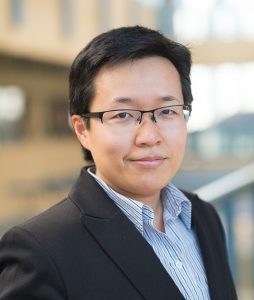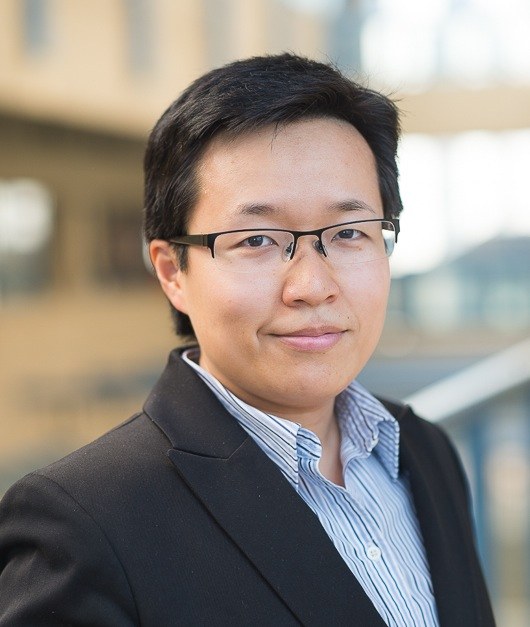Scarcity Mindset With Jiaying Zhao
Today on Mindset Monday I speak with Jiaying Zhao about the Scarcity mindset and how it impacts everyone. She brings her own story about growing up in China living in an area experiencing poverty and tells us that is has led her to dedicate her life to researching and helping some of the most vulnerable and poor people. She shares her lens on this topic as well as some research and statistics from her work.
Meet Jiaying

Jiaying has her Ph.D. in Cognitive Psychology and is an Assistant Professor for the Department of Psychology at UBC. She is a Canada Research Chair (t2) in Behavioral Sustainability. She belongs to the Institute for Resources, Environment, and Sustainability. She loves her work of research, supervising students, research projects, teaching, and service.
On the Synergy Mindset Podcast, she takes us back to the beginning of her story and shares about her life growing up in China. She tells us she grew up poor and had intimate experiences in her family and in society at that time. Her family got out of poverty and she was able to pursue an education in Canada.
She was interested in poverty because of her personal experience and when she was in graduate school, one of her Ph.D. advisors was working on poverty. Jiaying jumped on board immediately because it was a personal interest and passion of hers since childhood. They wanted to understand what makes the poor poor and for the last decade have been investigating a psychological cognitive explanation of the behaviors of low-income individuals.
Scarcity Mindset is a condition of not having enough or the feeling of not having enough. This can be money, time, calories, pretty much anything. It is experienced by pretty much everyone in the world.
When someone is feeling scarcity they begin to tunnel their resources. They focus only on the task at hand and can end up making poor decisions due to a lack of seeing the big picture.
Jiaying uses the example of money scarcity and how people borrow money, such as payday loans, with high interest to solve the moment’s problems. They neglect everything else and those other things are equally important. This is a cognitive phenom.
There are other scarcity mindsets. There are social driven ones as well. In society, we tend to view low-income individuals as lazy or not-competent and it is most of the time, unfair and not true. The poor suffer a lot of stigma because of their poverty identity. Therefore, a poor person may be worried about how others view them based on the perception that they know the average person will view them. These are mental burdens on the poor.
It uses cognitive resources and the worry has effects. This constant worry reduces IQ and decreases performance. When Jiaying grew up in China in the 80’s everyone was poor therefore she experienced equality. Here in Canada, we have inequality of super-rich to all ranges which causes even more of a stereotype.
We need to change the public perception of the poor and there are several initiatives on the way.
Self-fulfilling Prophecy
A vicious cycle, the person perceives the stereotype is true about them, therefore, acts with behavior that is destructive or will be in ways to confirm the belief and ends up becoming the person that the stigma projects. It can be broken by realizing the stereotype or belief is not true. This is how we can begin to dissociate the situation from the individual. The individual can change their belief about themselves and therefore change their behavior.
Policymakers can help make a difference as well. Jiaying has met with leaders to discuss how the government can help by increasing the overall income for low-income people. She suggests that we look at the impact the cash incentives will have on a person and what their individual needs are. If someone is not well or able to make decisions then we should provide services that are helpful. For some, they only need cash, they don’t need all the services and programs. We should use our due diligence to look at the impact that we are having.
Studies show that most people that are given a cash incentive do not use it on gambling or drugs and alcohol, they use it for good.
They are struggling to live in that scarcity context and need as little burden put on their lives as possible. Their cognitive bandwidth needs to be protected and we could look at how could we make it easier for them? One way Jiaying suggests is to offer automatic supplements if they make under a certain amount. She believes the help when they seek it needs to be easier to access, they should not have to request it.
What can people in poverty do to turn their life around?
Jiaying tells me it is the same things that everyone else would do. She doesn’t feel anyone should tell them what to do but if we want to work together we can offer to help them brainstorm. They are incredibly able to take care of themselves and seek out support. It is helpful to remind them of appointments if they would like that help as it is really hard to manage those things without a planner or calendar.
What she believes that all of us can do: Self-care!
Favorite Book
- Scarcity, Why Having Too Little Means So Much by: Sendhil Mullainathan and
-
Purpose, Incorporated: Turning Cause Into Your Competitive Advantage
Links
- Jiaying’s website: http://zhaolab.psych.ubc.ca/
- Intro Music credit with gratitude to: Scott Holmes Song Innovative Corporate scottholmesmusic.com URL: http://freemusicarchive.org/music/Scott_Holmes/Corporate__Motivational_Music/
- Photo credit with gratitude: Photo by Elvis Bekmanis on Unsplash
- Listen to the podcast interview: Here https://anchor.fm/synergymindsetcoaching/episodes/Scarcity-Mindset-With-Jiaying-Zhao-e3o8nh



